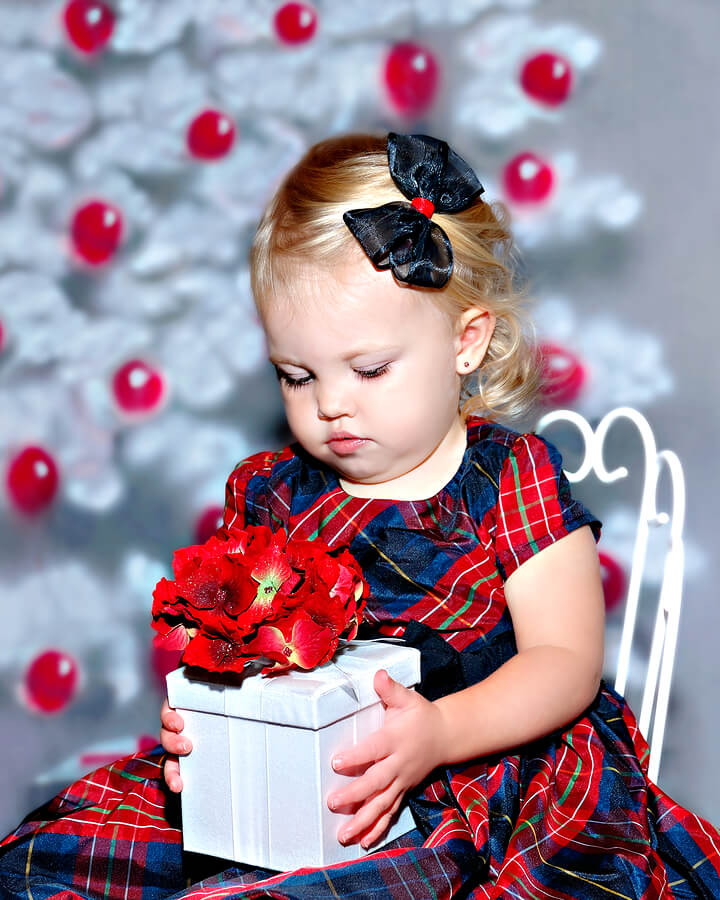
How to Keep the Holidays Happy and Stress Free for Those with ASD
Holidays can be stressful for everyone: family gatherings, money issues, or just plain expectations differences can really create a frantic atmosphere. For someone with ASD, visitors, new food, or even too many presents can cause stress and make them feel overwhelmed. Here are some tips for keeping the holidays happy and on an even keel.
1)Keep Routines the Same
Try to keep mealtimes, bath time and bedtime the same. Stick with the tried and true routines that your child thrives on. Now is not the time to introduce new foods such as Grandma’s traditional fruitcake unless you know your child is open to change or trying new things. If you need to alter a routine, let your child know in advance and work it into the daily visual schedule.
2)Plan for Free Time
People with ASD often lead very scheduled lives because they need predictability and routine; however, all people need a break from time to time. Do allow for some unstructured time, even if it’s not productive or educational. Down time can be a great way to calm anxiety for everyone.
3)Arrange for Some Fun Family Activities
Look in your local paper or community guides to see what’s on for the month of December. A family swim at the local YMCA, skating, story time at the library, children’s theatre, tobogganing, a sleigh ride, or bowling can be great family activities.
4)Prepare for New or Familiar Activities
Whatever new or old activities you plan to do, be sure to prepare your child in advance. Show the upcoming event on a calendar with a picture and/or text if your child can read. Use or make a social story with photos to show what will happen on an outing. If you don’t have a social story prepared, perhaps briefly stop by the place you plan to visit just to let your child see where something will take place. A little advanced preparation can lessen a child’s anxiety and make the activity pleasant for the whole family.
5)Limit Houseguests and Visitors
Yes, ’tis the season to be jolly, but try to keep houseguests to a minimum as they tend to upset routines. Ask people not to drop by without notice. Prepare children in advance with photos of visitors. Allow your child to leave the room if they need to. Try not to have unrealistic expectations for your child when visitors/relatives are coming over. I never ask my children to hug or kiss their relatives as I know they feel stressed about that. I have a policy of no unannounced houseguests because that leads to disaster when I can’t prepare the children ahead of time.
6)Introduce Christmas Again
Because it only comes once a year, children with autism may not always remember what it’s all about –the family traditions, carols, going to church, etc…Read books about Christmas, watch children’s Christmas videos (Rudolph the Red Nosed Reindeer, Sesame Street, and The Wiggles have Christmas videos for example), and play Christmas music in your home and car. You’ll hear Christmas music almost everywhere you go during the season, including elevators!
7)Gift Opening Can Be Overwhelming for Someone with ASD
Christmas day gift opening can be overwhelming. In our house, we used to spread Christmas gift opening over the course of a week. The children opened a couple of presents every day until after New Year’s Day. They loved it because they could only cope with seeing a couple of new things at a time.
When opening gifts from friends and family who are present, help your child with a scripted response for showing their thanks. People with ASD will often tell you exactly how they feel about something and the gift-giver can feel slighted if the gift is not appreciated or acknowledged.
For those with fine motor challenges, opening a wrapped present can be difficult. Try using gift bags with tissue paper instead.
8)The Element of Surprise and Anxiety
If not knowing what is in the wrapped box creates anxiety, use a picture symbol or photo of what is inside to lessen the anxiety. If your child has difficulty tearing paper off of presents and opening boxes due to fine motor planning issues, try using gift bags which provide easier access.
9)Be Wary of Over-Scheduling
It is tempting over the holidays to try and squeeze in lots of visits, day trips, or events. Limit new experiences to one a day. When going to a new place, a reasonable time to stay is half an hour. After that time period, the senses tend to get overloaded. Keep flexible – be prepared to move to plan B if plan A is not working.
10)Schedule Some Time for You and Your Spouse or Alone Time
The holidays are a good time to reconnect with your spouse, friends or just yourself. Book a baby-sitter and go out just the two of you to a movie or dinner. Take a break and don’t feel guilty about it. You need to regroup after being with the children all day. Go for a drive, sit in a coffee shop and read – do whatever moves you. All adults need some R & R over the holidays.
Keep an open mind about the holidays as parents of a special needs child. Things may not go according to plan. You may have to abandon one activity for another. The most important thing is being together, feeling calm and stress-free, and giving your child love and security. Merry Christmas and a Happy New Year to you all!
Editorial Policy: Autism Awareness Centre believes that education is the key to success in assisting individuals who have autism and related disorders. Autism Awareness Centre’s mission is to ensure our extensive autism resource selection features the newest titles available in North America. Note that the information contained on this web site should not be used as a substitute for medical care and advice.
